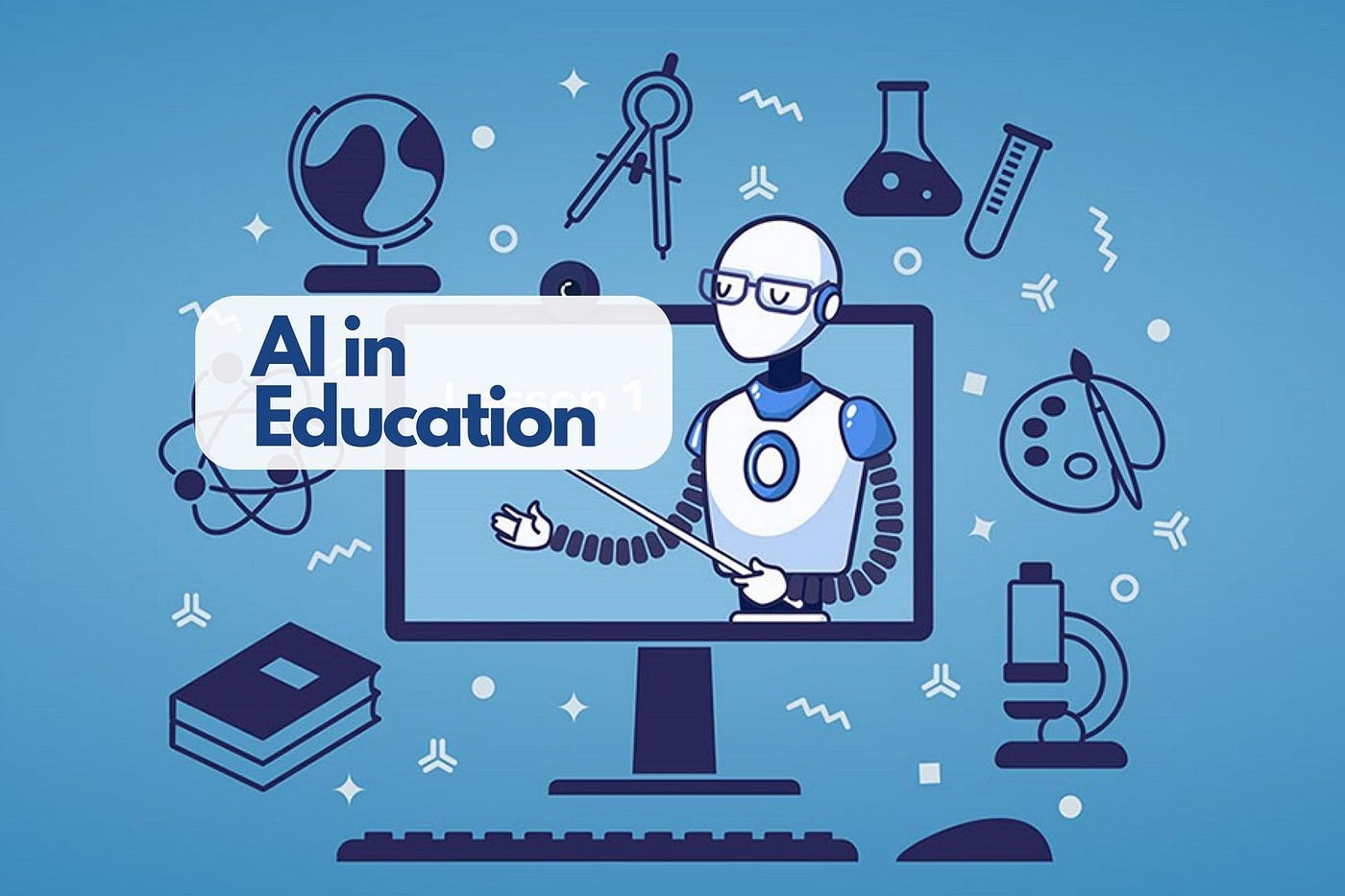Ai Integration within Tools: Enhancing Productivity
AI integration within tools enhances efficiency and accuracy. It automates tasks, providing valuable insights for better decision-making.
Artificial Intelligence (AI) is revolutionizing how we use various tools across industries. By integrating AI, businesses can streamline operations, reduce human error, and improve overall productivity. From project management software to customer relationship management systems, AI capabilities transform traditional workflows.
These tools analyze large data sets quickly, offering actionable insights that drive strategic decisions. As organizations seek to stay competitive, leveraging AI becomes essential. The integration not only saves time but also enables teams to focus on higher-value tasks. Embracing AI tools fosters innovation and enhances user experience, making it a vital component of modern business practices.
The Rise Of AI in Modern Tools
The integration of AI into everyday tools is transforming our lives. From smart assistants to data analytics, AI enhances functionality. This shift improves user experience and increases productivity.
Evolution From Manual To Ai-driven
Manual tasks have dominated many industries for decades. Workers spent hours on repetitive actions. Today, AI-driven tools automate these processes.
- Data Entry: Automated systems reduce human error.
- Customer Support: AI chatbots handle inquiries 24/7.
- Project Management: AI tools optimize workflows and deadlines.
This evolution saves time and resources. Businesses can focus on strategic tasks instead of mundane ones.
Impact On Workplace Efficiency
AI tools greatly enhance workplace efficiency. They streamline operations and improve decision-making.
| Tool Type | Efficiency Benefit |
|---|---|
| AI Scheduling Software | Reduces meeting conflicts and saves time. |
| AI Analytics Tools | Quickly process vast amounts of data. |
| AI Writing Assistants | Enhance content quality and cut editing time. |
Companies using AI tools report faster project completion. Employees enjoy reduced workloads and greater job satisfaction.
- Increased Productivity: Focus on high-value tasks.
- Better Collaboration: AI fosters teamwork through shared insights.
- Data-Driven Decisions: Accurate analytics improve strategy.
The rise of AI in modern tools reshapes how we work. Embracing these advancements is essential for future success.
Key Benefits Of AI Integration
AI integration in tools brings many advantages. It enhances productivity and improves efficiency. Businesses can save time and resources. Let’s explore some key benefits.
Automating Repetitive Tasks
AI helps to automate tasks that are boring and repetitive. This saves time for employees. They can focus on more important work.
- Reduces human error
- Increases speed of task completion
- Boosts employee morale
- Allows for better resource allocation
For example, AI can handle:
- Data entry
- Email sorting
- Scheduling appointments
These tasks often take up valuable time. Automating them frees employees to use their skills effectively.
Data Analysis And Decision Making
AI can analyze large amounts of data quickly. It helps businesses make better decisions. AI tools identify trends and patterns in data.
| Benefit | Description |
|---|---|
| Faster Insights | AI processes data faster than humans. |
| Improved Accuracy | AI reduces mistakes in data analysis. |
| Predictive Analytics | AI can forecast future trends. |
These insights help companies:
- Increase sales
- Enhance customer satisfaction
- Optimize marketing strategies
AI integration transforms data into actionable insights. Businesses gain a competitive edge using AI tools.
AI-powered Tools Transforming Industries
AI-powered tools are reshaping industries at a rapid pace. Businesses now use these tools to improve efficiency and make better decisions. The impact of AI is especially noticeable in fields like healthcare and finance. These tools help in diagnosis, forecasting, and more.
Healthcare And AI diagnostics
AI diagnostics enhance patient care significantly. These tools analyze vast amounts of data quickly. They identify patterns that humans might miss. This leads to faster and more accurate diagnoses.
- Early Detection: AI tools spot diseases early, improving treatment success.
- Personalized Medicine: AI recommends tailored treatment plans.
- Data Management: AI organizes patient records efficiently.
| AI Tool | Function | Benefit |
|---|---|---|
| IBM Watson | Analyzes medical literature | Provides evidence-based treatment options |
| Google DeepMind | Predicts eye diseases | Improves patient outcomes |
| PathAI | Pathology analysis | Increases accuracy in diagnoses |
Ai In Financial Forecasting
AI also plays a crucial role in finance. It enhances forecasting accuracy and risk management. Financial institutions leverage AI tools for data analysis and trend prediction.
- Risk Assessment: AI assesses potential risks in investments.
- Market Predictions: AI analyzes trends to predict market movements.
- Fraud Detection: AI identifies unusual transactions quickly.
Overall, AI-powered tools offer transformative solutions across industries. They help organizations save time and resources. Companies can now focus on growth and innovation.

Credit: medium.com
Enhancing Creativity And Innovation
AI integration in tools offers endless possibilities. It boosts creativity and sparks innovation across various fields. Professionals use AI to unlock new ideas and enhance their work.
Ai In Design And Content Creation
AI tools help designers and content creators in many ways:
- Automated design suggestions: AI analyzes trends and provides design options.
- Content generation: AI creates articles, blogs, and even social media posts.
- Image enhancement: AI improves images with filters and adjustments.
Here are some popular AI tools:
| Tool Name | Function |
|---|---|
| Canva | Graphic design with AI-driven templates. |
| Jasper | AI-generated written content for marketing. |
| DeepArt | Transforms photos into art using AI. |
Supporting Research And Development
AI accelerates research and development in various sectors:
- Data analysis: AI quickly analyzes large datasets.
- Prototype testing: AI simulates tests to improve products.
- Predictive modeling: AI forecasts trends and outcomes.
Benefits of AI in research:
- Reduces time spent on repetitive tasks.
- Increases accuracy in experiments.
- Fosters collaboration among teams.
Improving Communication And Collaboration
AI integration enhances communication and collaboration in various tools. Businesses use AI to streamline interactions. This leads to faster decision-making and better teamwork.
Ai Chatbots For Customer Service
AI chatbots provide instant support to customers. They answer questions 24/7, improving customer satisfaction. Here are some benefits of using AI chatbots:
- Immediate Responses: Chatbots reply instantly.
- Cost-Effective: Reduce the need for large support teams.
- Data Collection: Gather customer feedback easily.
Chatbots can handle common queries. This allows human agents to focus on complex issues. Businesses notice higher efficiency and happier customers.
Virtual Assistants In Team Management
Virtual assistants help manage teams effectively. They organize schedules, set reminders, and track tasks. Here’s how virtual assistants improve team management:
- Task Automation: Automate repetitive tasks.
- Improved Organization: Keep all team members informed.
- Enhanced Focus: Allow team members to concentrate on important work.
Using virtual assistants boosts productivity. Teams collaborate better when tasks are organized. AI tools foster a more cohesive work environment.

Credit: www.linkedin.com
Challenges Of AI Integration
Integrating AI into tools presents various challenges. These obstacles can hinder growth and innovation. Understanding these challenges is crucial for success.
Addressing The Skills Gap
The skills gap is a major barrier to AI integration. Many companies lack personnel with the right expertise. This can lead to:
- Increased training costs
- Project delays
- Low employee morale
Organizations must invest in training programs. Focus on upskilling current employees. Collaborate with educational institutions for better outcomes.
Ethical Considerations And Bias
Ethical concerns arise with AI use. Bias in AI algorithms can lead to unfair outcomes. Key issues include:
- Data privacy violations
- Discrimination in decision-making
- Lack of transparency
To combat these problems, organizations should:
- Implement ethical guidelines
- Regularly audit AI systems
- Encourage diverse teams
Addressing these ethical challenges is essential for trust. Companies must prioritize transparency and fairness in AI development.
Future Of Work With AI Tools
The future of work is rapidly changing with AI tools. These tools enhance productivity and creativity. They automate mundane tasks and help workers focus on important work. Organizations are adopting AI to stay competitive and efficient.
Predicting The Next Tech Revolution
AI tools are at the forefront of a tech revolution. They transform how we work and communicate. Here are some trends to watch:
- Automation: Routine tasks will become automated.
- Collaboration: AI will enhance team collaboration.
- Data Analysis: AI will provide deeper insights from data.
- Customization: Tools will adapt to individual work styles.
Businesses will invest heavily in AI. This investment will create new opportunities. Job seekers need to understand these changes.
Preparing For A Shift In Job Roles
The rise of AI tools means job roles will evolve. Workers must adapt to new technologies. Here’s how to prepare:
- Learn New Skills: Focus on AI and data analysis skills.
- Embrace Change: Stay open to new methods and tools.
- Network: Connect with others in your field.
- Stay Informed: Keep up with AI trends and tools.
Job roles will shift from manual tasks to more strategic tasks. Workers will need to solve problems creatively. Adaptability will be key to success.

Credit: arcitech.ai
Best Practices For Implementing AI
Integrating AI into your tools can enhance efficiency and productivity. Following best practices ensures smooth implementation. These practices help organizations achieve their goals effectively.
Strategies For Effective Integration
Successful AI integration requires clear strategies. Here are key strategies to consider:
- Define Clear Objectives: Identify what you want AI to achieve.
- Engage Stakeholders: Involve everyone affected by AI tools.
- Choose the Right Tools: Select tools that fit your needs and goals.
- Start Small: Begin with pilot projects to test concepts.
- Focus on Data Quality: Ensure your data is accurate and clean.
Measuring Success And Roi
Measuring the success of AI integration is vital. Use metrics to track progress and return on investment (ROI). Here are ways to measure:
| Metric | Description |
|---|---|
| Efficiency Gains | Track time saved through AI tools. |
| Cost Reduction | Measure any decrease in operational costs. |
| User Satisfaction | Gather feedback from users on AI tools. |
| Revenue Growth | Analyze any increase in sales due to AI. |
Regularly review these metrics. Adjust strategies based on the data. This ensures continuous improvement and alignment with goals.
Frequently Asked Questions
What Are The Benefits Of AI Integration In Tools?
AI integration enhances efficiency, automating repetitive tasks and improving accuracy. It allows for data-driven insights, helping users make informed decisions. Additionally, AI tools can offer personalized experiences, adapting to individual user needs, which increases productivity and satisfaction.
How Does AI Improve Productivity In Software Tools?
AI improves productivity by streamlining workflows and reducing manual effort. Intelligent algorithms can prioritize tasks, manage schedules, and even predict project outcomes. This allows teams to focus on higher-value activities, ultimately boosting overall performance and output.
Which Tools Utilize AI Technology Today?
Many tools utilize AI, including project management software, CRM systems, and data analytics platforms. Popular examples include Trello, Salesforce, and Tableau. These tools leverage AI to enhance user experience, automate tasks, and provide actionable insights for better decision-making.
Can AI Tools Be Customized For Specific Needs?
Yes, AI tools can often be customized to meet specific requirements. Many platforms offer features that allow users to tailor functionalities and workflows. This customization ensures that the tools align with individual business goals, leading to more effective results.
Conclusion
AI integration within tools is revolutionizing how we work and interact. By enhancing efficiency and streamlining processes, these technologies are shaping the future. Embracing AI can lead to greater productivity and innovation. As we continue to adapt, staying informed will be crucial for leveraging these advancements effectively.




